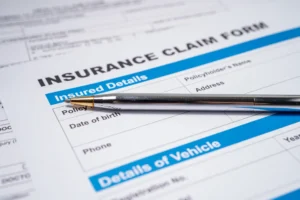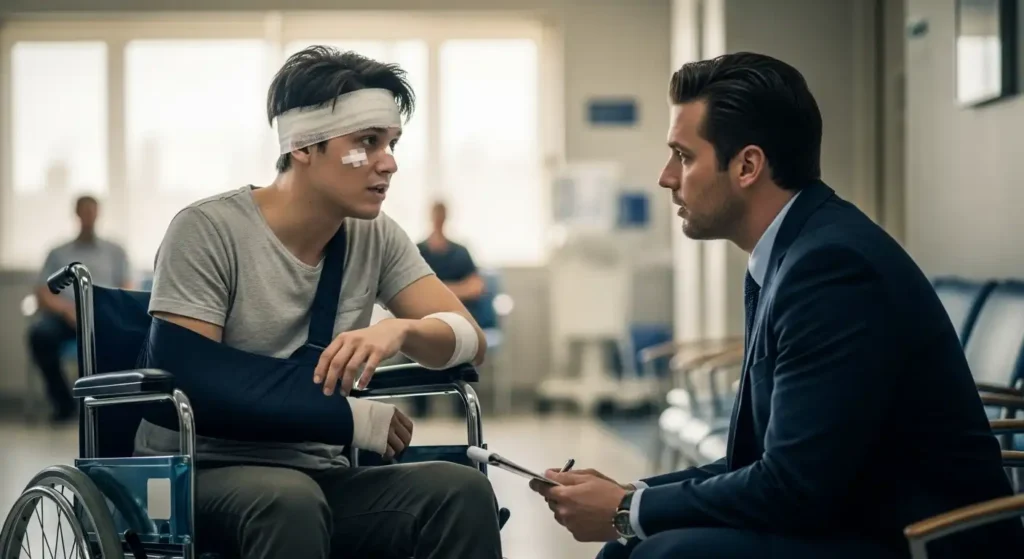Rideshare services like Uber have transformed how people get around, offering convenience, flexibility, and often a safer alternative to traditional taxis. As the popularity of these platforms grows, so does the need for clear information on what happens when things go wrong—especially when passengers are involved in accidents.
Understanding passenger rights after an Uber crash is crucial for anyone who uses rideshare apps. Injuries and vehicle damage can disrupt your life, but knowing your legal protections helps you respond confidently and seek fair compensation.
This article unpacks the key aspects of rideshare accident passenger rights. You’ll find direct answers about insurance coverage, legal deadlines, compensation options, and what steps to take immediately following an Uber crash. The goal is to make sure you’re prepared to protect yourself if the unexpected happens during your next ride.
Immediate Steps to Take After an Uber Crash

When an Uber crash happens, your immediate actions can impact both your safety and your ability to secure fair compensation. Knowing what to do in the heat of the moment helps you protect yourself and strengthen your case later.
1. Prioritize Safety and Assess Injuries
- Move to a safe area if possible.
- Check for injuries—both your own and others’—before anything else.
- If anyone is hurt, do not attempt to move them unless there is immediate danger.
2. Call Emergency Services
- Dial 911 if there are injuries or significant property damage.
- Request medical attention even for minor symptoms; some injuries surface hours later.
- Police presence ensures accurate documentation of the incident.
3. Stay Calm and Avoid Confrontation
- Emotions run high after a collision, but remaining calm helps you think clearly.
- Avoid arguments with the driver or other parties involved.
4. Document the Scene Thoroughly
- Use your phone to capture wide shots of the vehicles, road conditions, license plates, rideshare app screens, and any visible injuries.
- Collect contact information from witnesses who saw the accident unfold.
5. Gather Essential Information
- Ask the Uber driver for their full name, insurance details, vehicle registration, and driver’s license number.
- Make note of the ride details within your Uber app—trip receipt, driver profile, and time of accident.
6. File a Police Report
Provide officers with factual details when they arrive. Obtain a copy or case number for future reference; this report will be vital for insurance claims.
Paying close attention to each “Uber crash immediate steps” task keeps you safe and creates a solid foundation for accident safety in Uber situations. These records play a critical role once insurance companies begin their investigation.
Understanding Insurance Coverage in Uber Crashes
Clarity on Uber insurance coverage is critical when you’re injured as a passenger. Rideshare insurance policies differ from standard auto insurance, and these differences impact how your claim gets processed.
Personal Auto Insurance vs. Commercial Insurance Uber Provides
- Personal auto insurance: Most Uber drivers carry personal car insurance, but this often excludes coverage when the vehicle is being used for commercial purposes—like driving for Uber.
- Uber’s commercial insurance: When the driver is logged into the app and actively transporting a passenger, Uber provides substantial commercial coverage. This typically includes at least $1 million in liability coverage per incident.
Coverage Varies by Driver Status
- Driver offline or app off: Only the driver’s personal auto policy applies.
- App on, waiting for ride request: Uber’s contingent liability coverage kicks in—much lower limits apply here (often $50,000 per person for bodily injury).
- En route to pick up or carrying passengers: The full extent of Uber’s commercial policy is active, including third-party liability and uninsured/underinsured motorist coverage.
Why These Details Matter
Understanding which policy is responsible helps avoid delays and denials. Claims filed under the wrong provider often get rejected or delayed, so knowing when Uber’s commercial insurance applies protects your right to compensation. This distinction makes all the difference if injuries are severe or medical bills pile up.
Passenger Rights to Compensation After an Uber Accident
 Understanding passenger rights after an Uber crash is crucial when pursuing injury claims in rideshare accidents. If you are a passenger involved in an Uber accident, you may pursue compensation for the following types of damages:
Understanding passenger rights after an Uber crash is crucial when pursuing injury claims in rideshare accidents. If you are a passenger involved in an Uber accident, you may pursue compensation for the following types of damages:
- Medical Expenses: Emergency care, hospital bills, follow-up doctor visits, medication, and ongoing rehabilitation.
- Lost Wages: Income lost due to missed work or decreased earning potential caused by injuries.
- Pain and Suffering: Compensation for physical pain, emotional distress, and reduced quality of life.
- Permanent Disabilities or Disfigurement: Long-term impairment or visible scars that impact daily living.
- Property Damage: Replacement or repair costs for personal items damaged during the crash.
Insurance companies often attempt to minimize payouts and may dispute the severity of injuries or the necessity of medical treatments. Documenting your injuries with medical records, keeping receipts for all related expenses, and gathering statements from witnesses are all essential steps. Thorough documentation strengthens your position if negotiations stall or if legal action becomes necessary. Without clear evidence, insurers can delay or deny valid claims, making it harder to recover full compensation after an Uber crash.
Medical documentation and prompt reporting of symptoms play a decisive role in linking your injuries to the accident. Accurate records not only validate your claim but also demonstrate the true impact of the crash on your life.
Legal Considerations and Deadlines for Filing Claims After an Uber Crash
Missing important deadlines can jeopardize your ability to seek compensation after a rideshare accident. Each state sets its own statute of limitations for personal injury claims, which includes those involving Uber crashes. For instance, Florida gives you two years from the date of the accident to file a lawsuit. Waiting too long often results in your case being dismissed, regardless of the severity of your injuries or the strength of your claim.
Key points to remember:
- Statute of Limitations: The time limit to file varies by state and often depends on specific circumstances. Always verify the deadline for your situation.
- Timely Action: Filing promptly is essential to preserve your rights. Delays can make it harder to collect evidence, track down witnesses, and demonstrate the full extent of your injuries.
- Medical Attention: Even minor aches or pains should be checked by a medical professional after an accident. Medical records created right after a crash strengthen your legal case and connect your injuries directly to the incident.
Missing these steps risks losing valuable legal protections tied to Uber crash legal rights and the rideshare accident statute of limitations. Proper documentation and timely action keep all recovery options open as you move forward.
The Role of Legal Representation in Navigating Uber Crash Cases
Dealing with the aftermath of an Uber accident often means facing complex insurance policies and tight deadlines. An experienced Uber accident lawyer plays a critical role in protecting your interests and maximizing compensation.
How an Attorney Supports Your Case
Here are some ways an attorney can support your case:
- Navigating Insurance Complexity: Rideshare injury attorney benefits include a deep understanding of Uber’s commercial policies, state laws, and how personal auto coverage interacts with rideshare claims. Attorneys break down policy jargon and guide you through each step.
- Negotiating with Insurers: Insurance companies frequently offer quick, low settlements that don’t truly cover your losses. A lawyer handles these negotiations, holding insurers accountable so you don’t have to settle for less than you deserve.
- Evidence Collection: Building a strong case requires gathering incident reports, medical records, dashcam footage, and witness statements. Legal professionals know exactly what documentation is needed—and how to obtain it efficiently.
- Filing Lawsuits When Needed: If fair compensation can’t be reached through negotiation, pursuing a personal injury lawsuit may be required. Attorneys prepare your case for court, file on time, and advocate for your rights before a judge or jury.
Working with a legal expert can make the difference between a frustrating experience and a fair recovery process. Your attorney becomes your advocate—handling paperwork, legal deadlines, and insurer pushback while you focus on healing.
Conclusion
Taking control of your safety and legal rights is essential after an Uber crash. Understanding your rights as a passenger empowers you to make informed decisions, ensuring you do not miss out on rightful compensation. Quick action—documenting the scene, seeking medical care, and gathering evidence—sets a strong foundation for your case.
Staying proactive with proven rideshare accident recovery tips helps preserve your well-being and finances. Legal guidance can be a valuable resource when navigating complex insurance claims or challenging lowball settlement offers. Do not hesitate to protect yourself by asserting your rights and seeking expert help if needed.
Your path to recovery depends on awareness and action. Make every step count—your health, peace of mind, and financial security depend on it.
Understanding passenger rights after an Uber crash can help you on your road to recovery. Explore our related resources and consult with professionals who specialize in rideshare accident cases.

